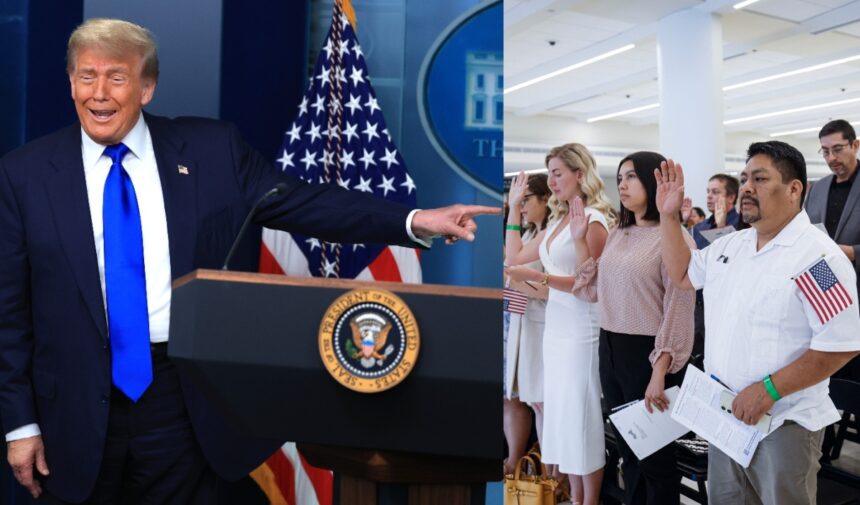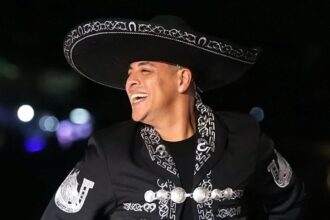The Department of Justice (DOJ) has begun to actively prioritize denaturalization cases, i.e., the revocation of U.S. citizenship granted to naturalized immigrants.
According to an internal memo issued on June 11, 2025 and released to NPR, the federal agency instructed its attorneys to initiate civil proceedings against naturalized citizens who have committed certain crimes, also giving prosecutors more leeway to decide when to act.
Citizenship revocation for naturalized citizens begins
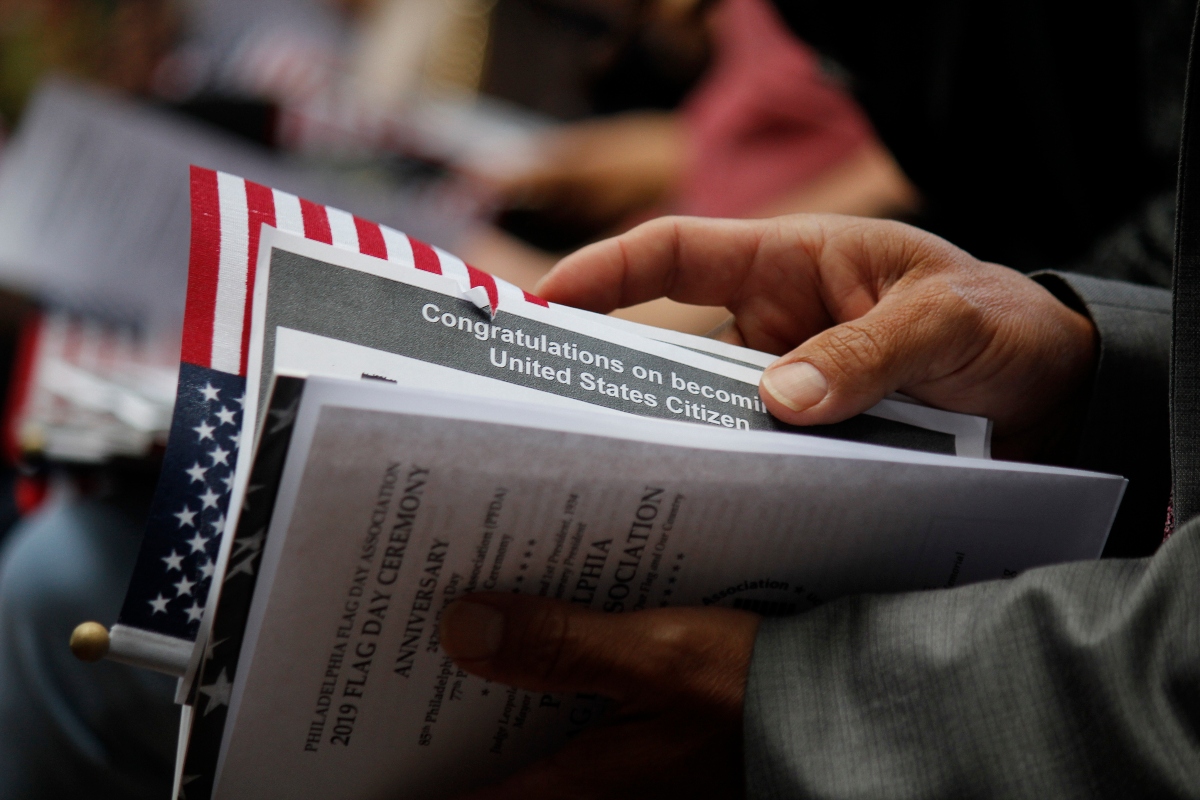
This measure directly affects a significant group: nearly 25 million people who, according to 2023 Census data, are naturalized U.S. citizens.
The initiative adds to other efforts by President Donald Trump, in his second term, to redesign the country’s immigration system.
This includes attempts to restrict birthright citizenship and reduce refugee programs.
What denaturalization means
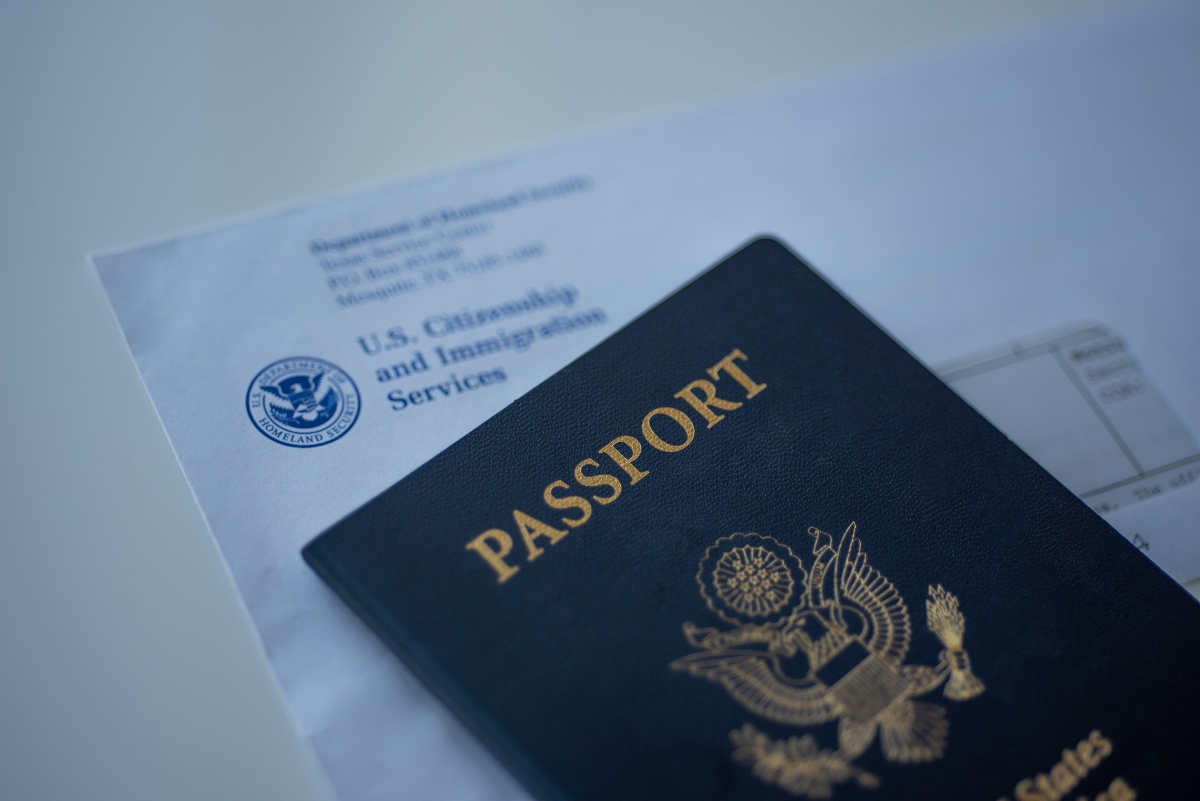
Denaturalization is not new, according to a report published by the independent media outlet NPR.
It was used extensively during the McCarthy era, in the 1940s and 1950s, to expel suspected communists or Nazis.
It was also revived during the Obama administration through the Operation Janus program, which used digital technologies to identify cases of fraud in naturalization processes, with a focus on national security.
During Trump’s first term, the DOJ expanded these actions through civil rather than criminal litigation, which is troubling, experts say, for several reasons.
First, because the right to a lawyer is not guaranteed and the standard of proof is lower, which allows for quick decisions and a very limited margin of defense for the affected party.
Experts have warned that such prosecutions may violate the 14th Amendment to the Constitution, which protects due process and equality before the law.
The Elliott Duke case: a disturbing precedent
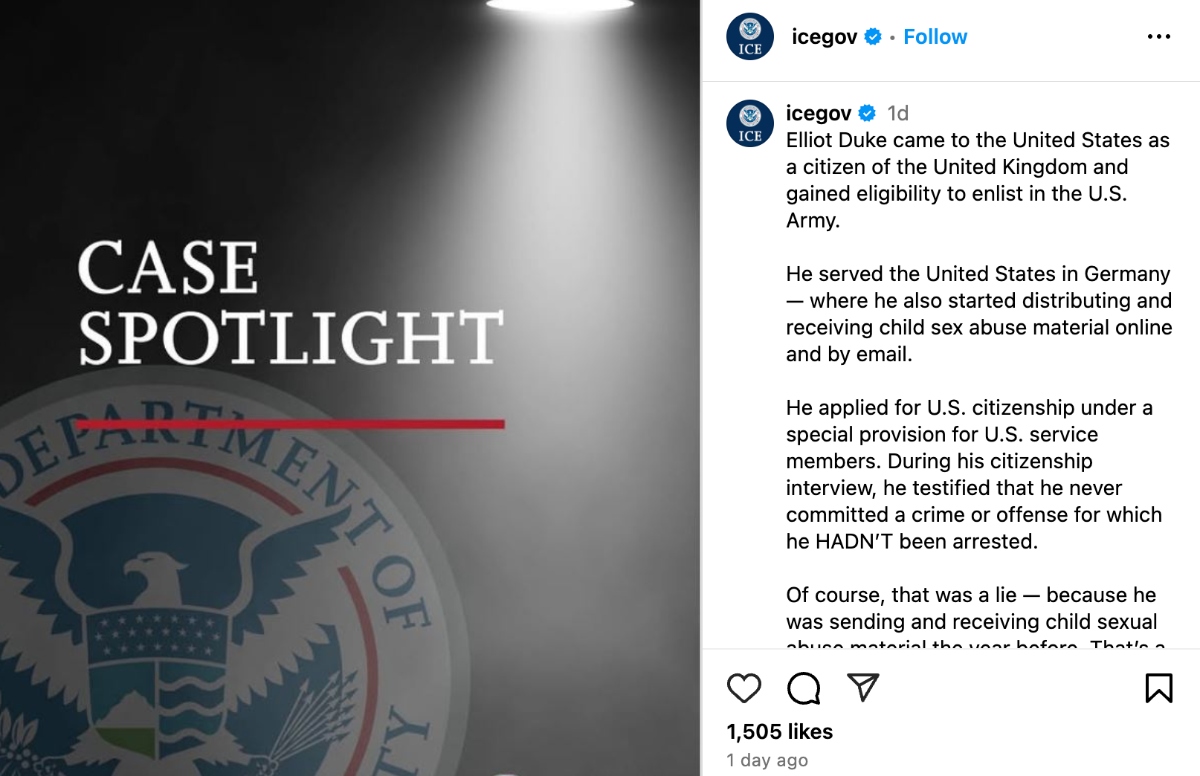
One of the first cases under this new policy was that of Elliott Duke, an army veteran originally from the United Kingdom.
Duke was convicted of distributing child sexual abuse material, an activity he admitted to engaging in prior to obtaining citizenship in 2013.
On June 13, 2025, a judge revoked his U.S. citizenship.
Duke is now in prison, without nationality (after renouncing his British nationality), and without a court-appointed lawyer to appeal the decision.
Although the crime for which he was convicted is serious, the process and its implications have generated alarm among legal experts.
Experts warn that opening the door to review citizenship already granted sets a dangerous precedent.
They believe that citizenship should not be something that can be arbitrarily questioned only for some.
Broad and dangerous criteria

The DOJ memorandum states that priority cases will include crimes related to national security, fraud against federal programs (such as Medicare, Medicaid or Paycheck Protection Program loans), and any other case that the DOJ deems “sufficiently important.”
This ambiguity is of concern to legal experts who believe that the criteria are so vague that they could be applied in a discretionary or arbitrary manner.
This could make naturalized citizens a more fragile legal category, separate from U.S.-born citizens.
Risks for entire families

One of the most critical points is the impact on families.
If the citizenship of a naturalized parent is revoked, what happens to the children who obtained citizenship by birth through them?
So far, the DOJ has offered no clear answers on this scenario, increasing the legal uncertainty for millions.
Debate between legality and human rights
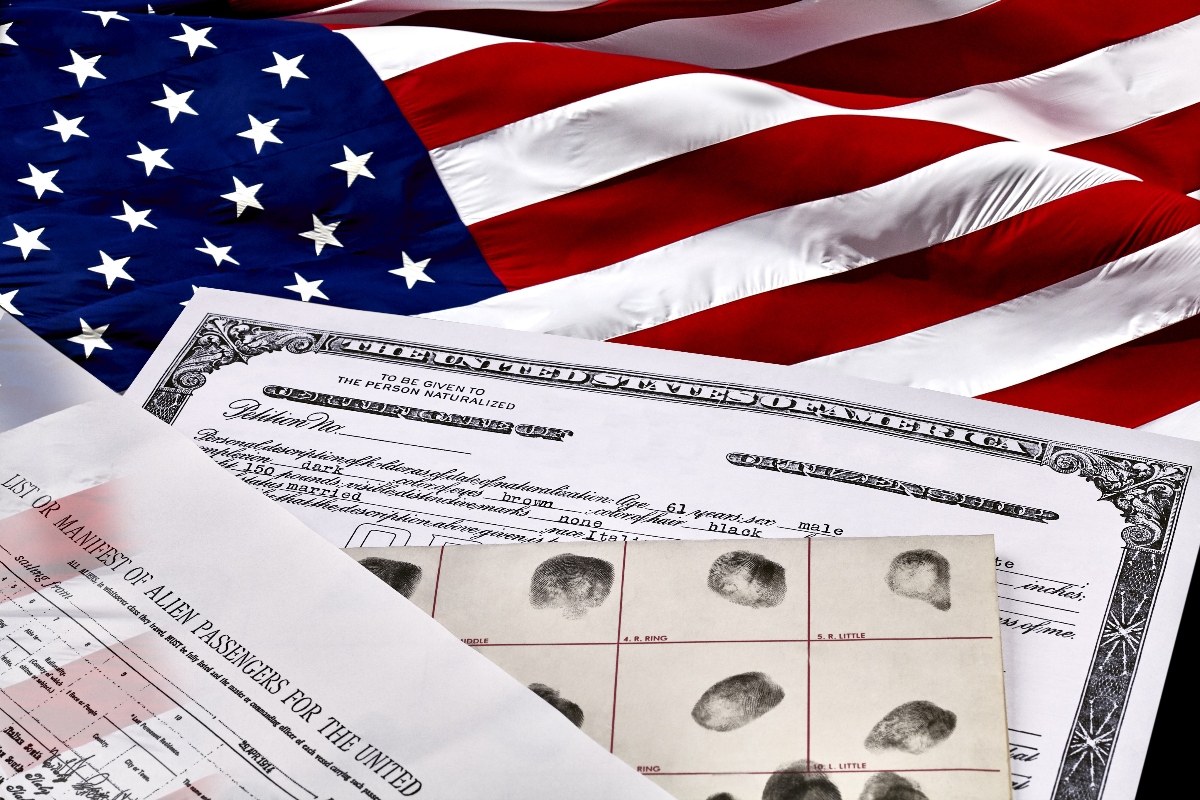
Conservative sectors, such as the Heritage Foundation, support the measure arguing that it protects the nation from criminals.
But other specialists in immigration law stress that the government cannot leave a person without nationality without violating international treaties.
In addition, denaturalization by civil means weakens basic constitutional guarantees, such as access to an adequate defense.
In the words of Assistant Attorney General Brett A. Shumate, “DOJ will prioritize and pursue denaturalization actions to the fullest extent possible in all cases permitted by law and supported by evidence.”
Hispanic community on alert
For naturalized Hispanics in the U.S., this policy marks a turning point.
Although the authorities insist that it will only apply to those who have committed serious crimes or lied during their naturalization process, the breadth of the criteria and the civil route chosen to prosecute them could put at risk people who did not even know they were at fault.
Being informed, consulting with specialized attorneys and keeping all immigration documentation in order is more important than ever. This trend could redefine the very meaning of being a U.S. citizen by 2025.
The DOJ memo states that priority cases will include crimes related to national security, fraud against federal programs, and any other cases deemed sufficiently important



